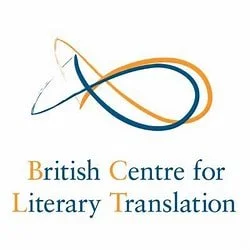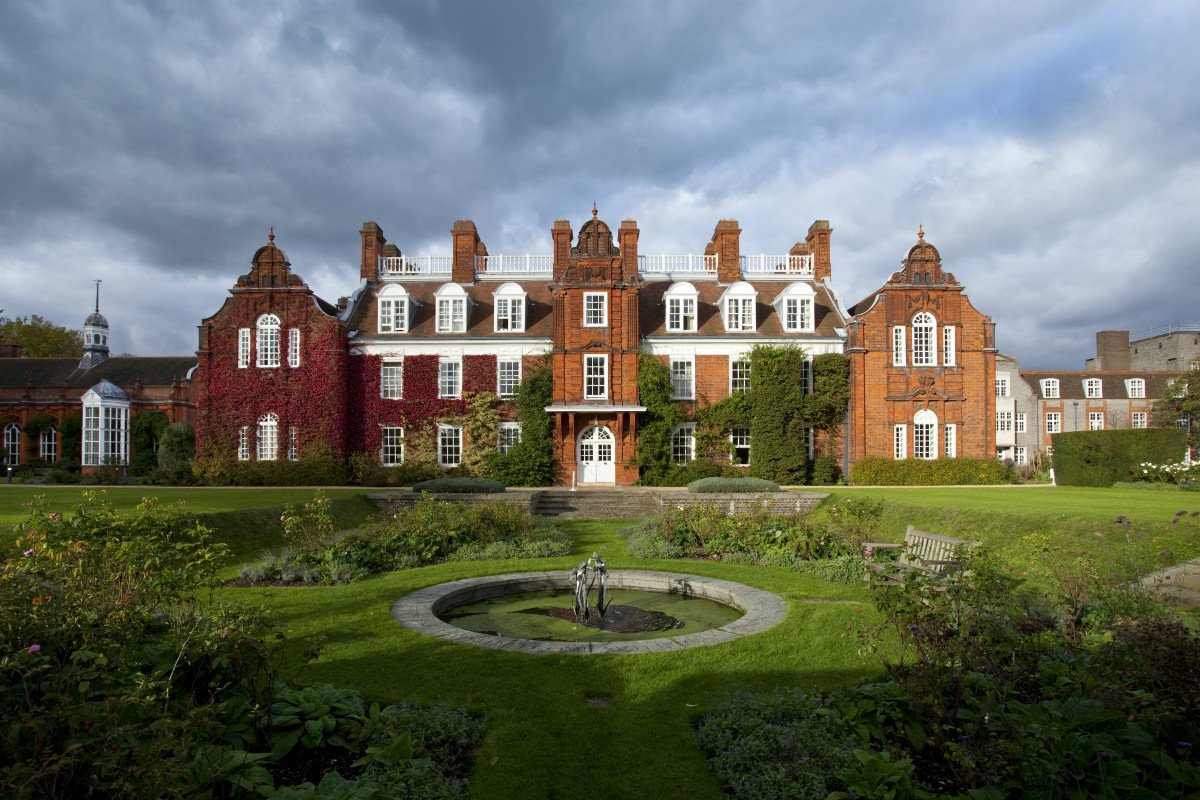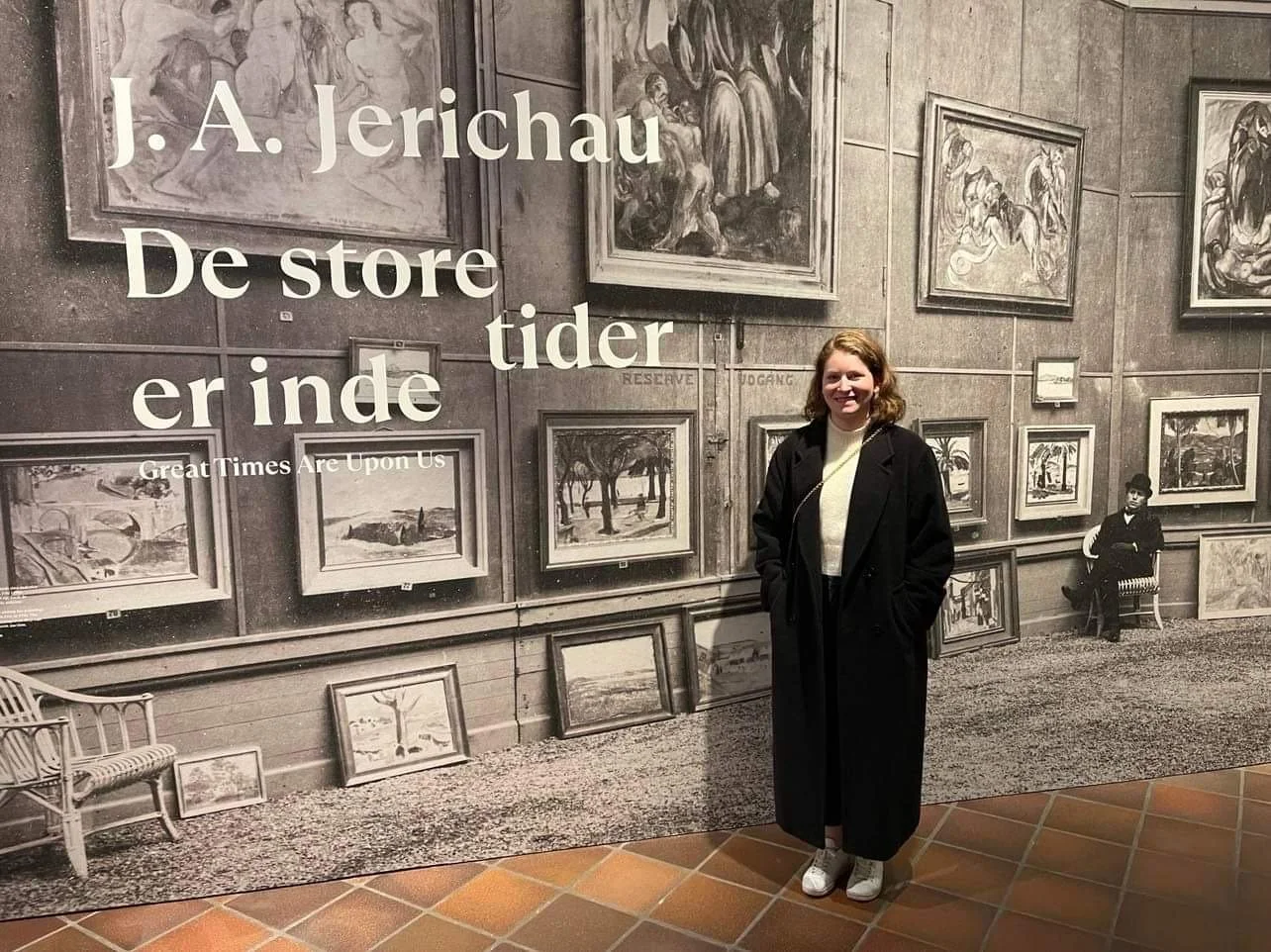CHASE blog
My placement at the Victoria and Albert Museum was an incredible learning experience working with one of the best collections of South Asian art in the world.
I undertook a full-time 6-month placement at the MayDay Rooms archives in London, assisting with the digitisation and preparation of exhibition materials for the archive’s “ForPeace!” collections.
My placement with The Autonomy Institute was incredible. It met and exceeded all my expectations, both with my personal experiences in the organisations and as an entry way into the field (think tank research).
It all began with a Public Writing workshop I attended in spring 2023, hosted by The Philosopher. At the time, I was simply an audience member—a philosophy student and researcher intrigued by the journal.
This summer, I was lucky enough to travel to New England as the recipient of the Herman Melville Society’s Walter Bezanson Archival Fellowship for 2024. The two-week fellowship, which took place at the New Bedford Museum Whaling Museum, granted me access to a vast collection of materials documenting the history of the whaling industry, as well as the collection of the Melville Society itself
Networks allow for the creation and development of bonds, which are nourished by connection and are the grounds upon which research can come to life in unexpected and diverse ways. I witnessed this firsthand during my tenure as Networks Officer.
As part of my CHASE-funded PhD project on the indigenisation of extreme metal in Bandung (West Java), I have organised, along with Hyperlocal Club - an Italian event platform chronicling the relationships between scenes and the urban areas where they are born - a night celebrating the Bandung underground as an example of empowerment between grassroots communities.
I recently concluded my placement with Mapping Archaeological Heritage in South Asia or the MAHSA project, housed in the Department of Archaeology at Cambridge. The PI for the project is Prof. Cameron Petrie, who is a leading archaeologist in the Indus Valley and adjacent sites in the region.
My experience at Bloomsbury provided me with an extremely useful insight into the workings of an academic publisher. From organisational culture and how the company sustains relationships with academics, to the nitty gritty processes that get a book published, this placement enabled me to see the bigger picture of academic publishing while providing experience of the various processes and stages involved in the dissemination of research.
My field trip to Tamil Nadu, India, entailed visiting not only significant archives and libraries in its capital city but also relatively smaller and remote libraries such as Sendhamizh College Library, Madurai American College Library in Madurai, Gnanalaya Research Library in Pudukkottai, and Paganeri Village Library, Sivagankai and other private collections in the southern parts of the state that house immensely valuable resources of early print sources
My CHASE placement took the form of a research and artist residency at Asia Culture Center in Gwangju, South Korea. The ACC is a prestigious international arts and cultural exchange organisation which positions itself as Asia’s largest arts centre.
As I had projected in my initial submission, the CHASE Placement at the British Centre for Literary Translation (BCLT) has been an excellent opportunity to start broadening my personal and professional horizons beyond the specific boundaries of the research on which I have been working in the last years.
My CHASE placement was in an area of work that had long interested me — the Editorial Internship with 19: Interdisciplinary Studies in the Long Nineteenth Century. 19 is a well-established trailblazer in open access publishing and Victorian studies, and as such a great host to gain experience.
The placement with Franklin Furnace […] was a truly incredible experience. Because of my long-standing relationship with Franklin Furnace, I was trusted to work very independently, and was fully supported in my ideas.
Through the placement I have been able develop new interests and skills, as well as putting them into conversation with my research in a sector where there are lots of new exciting projects and important conversations taking place.
This internship was a brilliant insight into the value of public history within the media industry, really showing me the worth of shaping historical research into a format which is accessible, entertaining and thought-provoking for as wide an audience as possible.
The placement gave me a sense of the scale of the National Trust, and the myriad forms of archival and curatorial practices within it. Working collaboratively with PhD researchers from other disciplines was eye-opening, resulting in a team that encompassed a wide variety of skills, specialisms and research interests.
From August 2022 - January 2023, I was doing a placement at Glasgow Women’s Library. It was very different to my experience in Athens where I did a placement at Athens Zine Bibliotheque. For one, I didn’t get Covid. It was much colder and wetter in Glasgow in winter.
I feel privileged to have learned from her expertise, especially in learning to differentiate different types of materials from the Pacific. I also had the opportunity to join in several research and community visits.
On top of bringing me incredible professional experience and certainty about wanting to have a career as a museum professional whether it will be in a museum, an art gallery or a private cultural foundation, this placement was also a tremendous opportunity for me to reflect on my PhD journey and start anew when going back to my research.
I would whole-heartedly recommend any CHASE-researchers to consider a placement as a research assistant to a scholar you admire. I now feel much more prepared to complete my own journal articles going forward.
This blog post is my effort to pay forward the help I received from others by sharing some things I learnt during my time as a doctoral researcher.
The journal is well known as a leader in open access scholarship as well as for its exciting, interdisciplinary outlook.
I started my placement as the Research Networks Officer in June 2022 … One of the best parts about this placement was being able to work on the CHASE team, and to take part in the conversations surrounding humanities research. It provided me with hands-on experience of working on the admin side of academia, in the crucial work that goes into supporting groundbreaking research. It was also wonderful to meet with so many researchers in networks across the consortium, many of whom I’ve established professional connections with and with whom I hope to collaborate with in future instances.
By Saskia Barnard, CHASE funded doctoral researcher at Birkbeck, University of London
After an afternoon spent among Mirrlees’s papers (think vintage photographs, intimate letters, near-illegible handwriting), I began to draft a proposal for a CHASE placement. I didn’t have much of a plan beyond the desire to spend more time in the archive
Breakthroughs are often framed as unquestionably good. But what if the pursuit of breakthroughs for their own sake was bringing us towards a breaking point? This was the question we wanted to explore when we organised our Being Human Café on the Culture of Optimisation, as a part of Being Human Festival.
By Sarah Gray
This is a brief reflection of an encounter with government censorship and the direct application of research ethics that it necessitated. The encounter was unexpected and took me off guard. It went something like this: “Maybe skip that?” the delegate sheepishly suggested when confronted with a reference to the Chagos Archipelago in…
The funded CHASE placement was a chance for me to gain professional experience that I would not have been able to get otherwise. As someone who had never worked in the arts sector before, it would have taken many unpaid internships to build up this level of experience





























